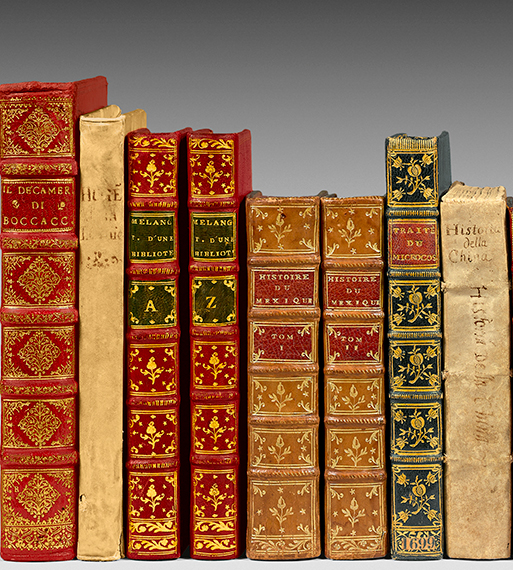First and only edition of Letters from Paul de Foix addressed from Rome to King Henry III.
Beautiful copy of great purity preserved in its original flexible vellum binding of the period.
Foix, Paul de. The Letters of Sir Paul de Foix, Archbishop de of Toulouse, & Ambassador to the King at PopeGregory XIII XIII written to KingHenry III.
Paris, Charles Chappellain, 1628.
In-4 of (17) ff., (1) blank f., 652 pp., (1) f., old handwritten inscription in black ink on the guard. Bound in full flexible vellum of the period, smooth spine with handwritten title. Binding of the period.
160 x 215 mm.
Original edition of the Roman diplomatic correspondence of Paul de Foix to Henry III.
“Since there is only one edition, copies are quite rare.”
(Brunet, II, 1315).
These 57 letters offer the correspondence addressed by the prelate to King Henry III during his last year of embassy in Rome to Pope Gregory XIII, between May 29, 1581, and November 4, 1582.
The address Ato the reader mentions the doubts of certain authors or publishers of the time who seemed to recognize in this epistolary collection the style of Arnaud d’Ossat, his secretary, future cardinal, and author of the illustrious Letters (1624).
After studying law and philosophy, Paul de Foix (1528-1584) was appointed to the Parliament of Paris. He later became a diplomat and adviser to Queen Catherine de Medici.
“After, as if by a miracle, escaping the St. Barrtholomew’s Day massacre, de Foix had to leave Paris and go to thank all the sovereigns of Europe for their eagerness to recognize Henry of Anjou as King of Poland. In May 1576, he was dispatched to the King of Navarre, to engage him to change religion, and received thearchbishopric of Toulouse at the hands of Cardinal d’Armagnac. Finally sent back to Rome in 1579, he remained there as ambassadour until his death. Montaigne held Paul de Foix in high esteem: after dedicating to him during his life a small poem by his friend La Boétie, doBoétie, which he published, he wrote the following lines in his ‘Essays’: “These are, he said, speaking of theArchbishop of Toulouse and the adviser of Faur de Pibrac, significant losses to our realm. I do not know if there remainsa in France what could ssubstitute another pair like à these two gentlemen in sincerity and competence for the counsel of our kings. Itwere souls beautifully diverse, according to the times, each in its own form. But who has housed them in these times so inappropriate and so disproportionate to our corruption and our storms ? ?”.
In 1628, Auger de Mauléon printed ‘The Letters of Sir Paul de Foix’; they are 57 diplomatic missives addressed to the king from May 29, 1581, until November 4 of the following year.”
(New General Bibliography, XVIII, 50).
“Paul de Foix is one of the most famous statesmen of his time. His first embassy was to Scotland to Mary Stuart. At the end of 1561, Paul de Foix was sent to England where he stayed 4 years. He provided the king with the means to withdraw Le Havre from the English. Upon returning from this legation, Charles IX made him councillor of state and sent him to the Republic of Venice. It was during this Venetian embassy that Montaigne dedicated to Paul de Foix, whom he held in high esteem, a small poem by La Boétie […] In 1576, Henry IIIsent him to GuiNavarre, to the King of Navarre, later Henry IV, to detach him from the Huguenot party and urge him to change religion.
In 1581, while Paul de Foix was in Rome for his own affairs, Henry III, by a dispatch on May 11, appointed him his ordinary ambassador there. It was Gregory XIII who was then seated on the pontifical throne. Paul de Foix died at the end of May 1584.” (Universal Biography, p. 318).
Precious copy, of perfect purity and wide margins, preserved in its original flexible vellum binding of the period.
Provenance: Ex libris Jacques Vieillard on the inner cover; handwritten ex libris in black ink on the title page “Constantin 1697“; pencil note ” Until 1955 Library of Raymond Daubige. Since 1955: in theof Enst of Enst de and Françoise née H and Françoise née on the last guard. on the last guard.e » sur la dernière garde.

